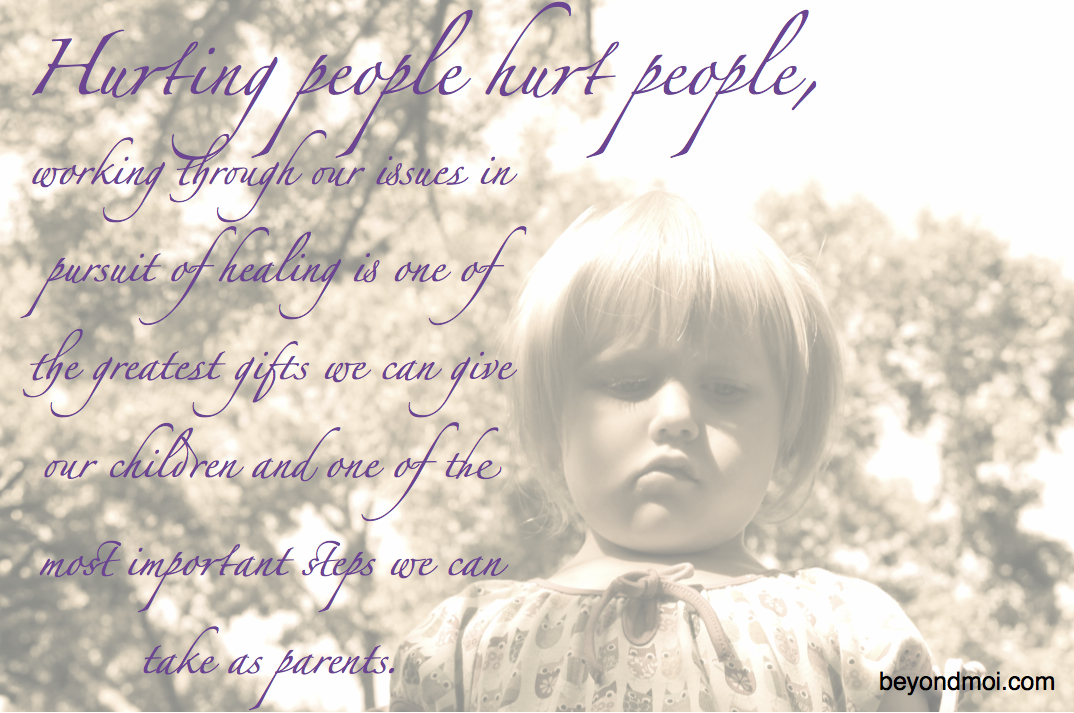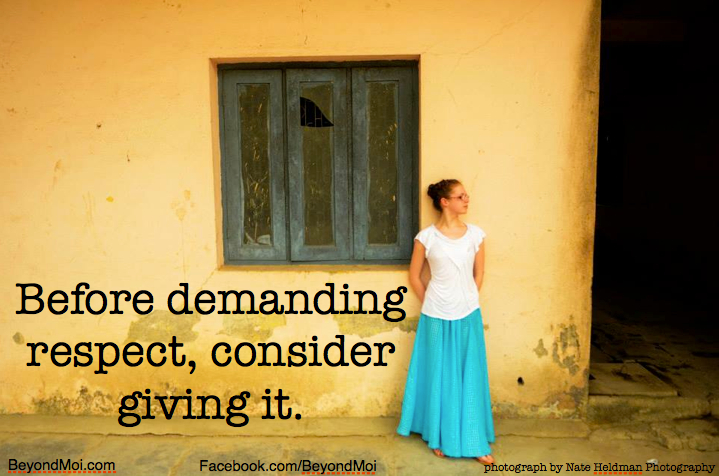A few nights ago I dreamt that I was back in High School, which really isn’t correct, because I grew up in France and this was clearly an American high school. So I was “back” in high school in the athletics department with a bunch of really ripped and intimidating guys. And they were bullying me. What I was doing there in the first place, or how they could bully someone of my size, I don’t know (this is Jeremy, by the way). Be that as it may, this dream was filled with fear. Fear of abuse. Fear of being abused again. Of not being able to stand up for myself. That any time these guys felt like it, they could punch me and get away with it. Or belittle me. Or really whatever they felt like doing. Eventually, I woke up and it was over.
Unfortunately, this kind of abuse happens all the time in real life. Jessica and I personally know of two teenagers (one boy and one girl) who faced this exact thing in the last few years; we’re talking friends of our family here, not just people we’ve heard about and vaguely know. And it wasn’t just bullying either; they were also harassed and touched in inappropriate ways by these athletes.
For those who were bewildered or confused about the post I made regarding the entitlement of men and the sexism that dominates American males, you must have the privilege of living a rather sheltered life. Take a look around, read a newspaper, watch the news, Google harassment or bullying, or be extra brave and ask the females in your life if they know anything about sexism, harassment, or simply unwanted attention.
I’ve often wondered where this all comes from, and though I know this isn’t a simple answer and that there are many factors contributing to the prevalence of sexism, rape culture, misogyny, and the like in the US, I’d like to focus on one with which I’m personally familiar: how we, as parents, influence our children.
I believe it’s only natural for humans to test boundaries when they are young, to see what they can get away with, such as hitting, screaming, lying, throwing things, throwing fits, using “bad” words, hiding things, etc. As parents, we have all seen it happen, and it starts at a way younger age than any of us would have expected it to. It’s normal. And, for the most part, we try to teach a better way for our children. Instead of lying, let’s be honest and try telling the truth. Instead of hitting your brother, let’s try talking to him. Let’s “work things out.” In our family we believe that these behaviors are often external expressions of internal conflict or hurt and we try to encourage our children to work through those areas within themselves.
As a society, however, we tend to be harder on our girls, expecting them to be more gentle, nurturing, caring, emotional, etc. Our boys we expect to be less all-of-those-girly-things; to be rowdy, energetic, and in general a whole lot more physical. And so it’s so easy to allow boys to behave in those expected ways while at the same time correcting girls for the exact same behavior because we didn’t expect them to come from a girl. Boys will be boys. Girls will be… gentle and nurturing and caring and more emotional, etc.
I’m not interested in sparking a debate about nurture versus nature here. I’m interested in pointing out that regardless of their sex, all children test the family and societal boundaries that they are born into. All of them do. And, that I have personally witnessed parents excuse the testing of these boundaries by boys simply by quoting this new-fangled proverb: “boys will be boys.” If a child is predisposed to violence, should we then allow them to be violent? If a child is predisposed to lying, should we excuse it and not correct it? When a little boy gives a little girl unwanted attention even though she has made it clear she doesn’t like it and we excuse it because he just likes her and “boys will be boys” is it any surprise that teenage boys continue giving girls unwanted attention, and that men harass women? What is natural may not always be beneficial. I’m sure most parents will agree with me on that.
If “boys will be boys” regulates how we shape our boys into men, does it not follow that “men will be men?” And before that, that “teenage boys will be teenage boys?” It sure seems that way to me. Why else would we allow bullying and sexual harassment to go on virtually consequence-free for teenage athletes (and indeed, non-athletes as well)? Is it just “boys will be boys” or are we safeguarding men’s favorite pastime: the next generation of professional sports? Or both? And in so doing setting up the next generation of jocks to be just like the previous one. I know; not all high school athletes are that way. There’s no need to start a #notallHSathletes on Twitter. Just like #notallmen are complete jerks. I know this. But if that’s what you’d like to focus on, then you are choosing to look away from the prevalent culture of male dominance and female subjugation by hiding behind those #notallmen and putting them on a pedestal. But even as you do so, is there not something wrong to elevate men to the level of extraordinary simply because they respect others? Respect should be the norm, not the exception.
So, back to our children: at what point do we intentionally start teaching them respect for others? I believe it should start at birth by modeling our respect for them and others. And then it should be teaching them self-respect. Any limiting or correcting that happens when it comes to how they interact with others, boys or girls, should start and end with respect. Respecting each other’s boundaries, belongings, space, feelings, thoughts, opinions, bodies, etc. And it should start young. Are your children treating others the way they themselves would like to be treated? Are you treating your children the way you would want to be treated? In our family the word “stop” is a magic word. It’s a boundary that can’t be crossed. If you’re tickling someone and they love it for a while and all of sudden say “stop” you are to stop immediately. It is serious business in our family when someone says “no” or “stop” regardless of how silly, unexpected, or stupid we may think it is. Even if the person saying “stop” is laughing.
Respect.
I believe we can deliver a huge blow to the cycle of abuse in our society simply by modeling and teaching our children respect.
~ Jeremy




